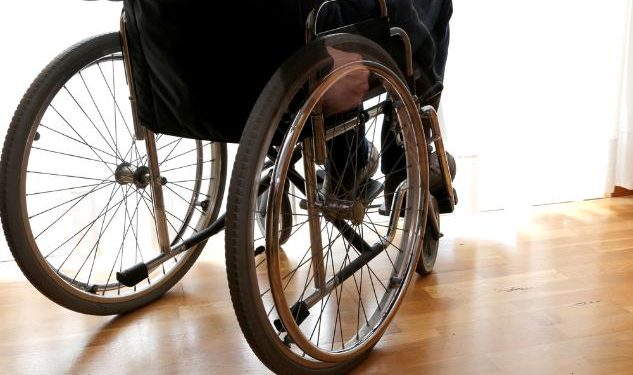There is no cure for MS, but treatments can improve symptoms and reduce the number of relapses. There are many options to help manage pain, spasticity (tightness of muscles), vision problems and fatigue.
Glatiramer acetate (Copaxone, Glatopa) lowers relapse rates and slows disability progression for people with relapsing-remitting MS. Other drugs that decrease the relapse rate are interferons and ponesimod.
Medications
Medications are a vital part of multiple sclerosis treatment and may be prescribed to prevent or ease symptoms, slow down the disease progression, or reduce flare-ups. They work by curbing your immune system (your body’s natural defense against germs) so it doesn’t attack the protective coating around nerve cells called myelin. These medications are known as disease-modifying therapies (DMTs) and include interferons, glatiramer acetate, peginterferon beta-1a or b1a, ofatumumab, ocrelizumab, siponimod, ponesimod, and ozanimod. They are self-injected or given by vein infusion and vary in their effectiveness and side effects, which include reactions at injection sites, flu-like symptoms, liver irritation and anemia.
Your doctor will also prescribe painkillers to relieve the fatigue and muscle spasms you might experience, as well as other medicines to manage your symptoms, like antidepressants for fatigue and anxiety or sedatives for depression and sleepiness. You might also be offered physiotherapy to help improve mobility and reduce pain in your joints, muscles or bladder and bowel.
Most people with MS have relapsing-remitting disease, which means that their symptoms come and go. They have periods of symptoms, called relapses or exacerbations, followed by weeks, months or years of no symptoms, which is known as remission. Some people have a gradual worsening of their symptoms without any relapses, which is called primary-progressive MS.
There is also a form of the disease where your symptoms get steadily worse over time, which is called secondary-progressive or progressive-relapsing MS. Some people have a sudden onset of symptoms, including weakness or vision problems, which is called optic neuritis or transverse myelitis. These symptoms affect the nerves at the back of your brain or spinal cord, and can lead to blindness or paralysis.
To make a diagnosis of MS, your doctor will ask you to describe your symptoms and do a physical exam. He or she might also order a test that makes detailed pictures of your brain and spinal cord, called an MRI. You might also have tests of your balance, coordination and vision to check for MS-related problems. Other blood tests might be done to rule out diseases that cause similar symptoms, such as Lyme disease or HIV. A sample of the liquid that cushions your brain and spinal cord (cerebrospinal fluid) may be taken through a test called a lumbar puncture or spinal tap to look for proteins associated with MS.
Exercise
A growing body of research suggests that exercise may help people with multiple sclerosis (MS) reduce fatigue, improve balance and strength, and even slow disease progression. However, many MS symptoms – such as weakness, fatigue and overheating during exercise – can make it difficult to get adequate amounts of physical activity. Moreover, a lack of physical exertion may contribute to further problems like depression and obesity, which can exacerbate existing MS symptoms.
A regular exercise program can reduce MS symptoms and increase overall strength and mobility, but it’s important to start slowly and build up fitness gradually. A physical therapist or fitness instructor familiar with MS can create a routine that fits your capabilities and addresses concerns such as poor balance, fatigue and spasticity. He or she can also monitor your heart rate and breathing to help prevent overexertion.
Moderate aerobic exercise – such as walking, swimming or playing a team sport – can help lower your resting heart rate and blood pressure, while increasing the proportion of healthy fats in your body. Aerobic exercise has also been shown to boost energy, mood and cognitive performance. In fact, an influential study found that participants with higher levels of aerobic fitness had less brain tissue degeneration than their counterparts.
Balance exercises can improve your sense of stability and coordination, and can also be helpful for preventing falls. Stand upright with your feet hip-width apart, and use a wall or railing for support. Then, lift one leg up so that it hovers slightly above the floor. Hold this position for 30 seconds, then repeat on the other side. You can also add arm movements such as bicep curls and tricep dips.
It’s common for people with MS to experience a temporary worsening of their symptoms during or immediately after exercise, such as weakness, numbness or blurred vision. This is most likely due to a rise in core body temperature, and can be mitigated by using cooling garments or devices such as a fan. If you’re experiencing severe fatigue or stiffness following a workout, talk to your doctor about decreasing the intensity, frequency and duration of your workouts.
Diet
A healthy diet is important for everyone, but it’s particularly vital if you have MS. Despite the lack of definitive proof that any particular diet helps or hurts MS, many people find that making changes to their eating habits can significantly improve their symptoms and quality of life.
Diets high in saturated fat and sugar, as well as those limiting certain vitamins or minerals, can contribute to inflammation and oxidative stress, which are both linked to MS. Some foods, such as cruciferous vegetables, may help to reduce the risk of inflammation. Others, such as fatty fish, are rich in omega-3 polyunsaturated fatty acids (PUFA), which appear to protect against demyelination.
Studies suggest that a Mediterranean diet, which is low in saturated fat and salt and high in fruit, vegetable and plant-based proteins and healthy oils, could slow the progression of MS. The Swank diet is another option, which aims to reduce saturated fat intake and increase fruit and vegetable and oil consumption. Both of these diets can be helpful in reducing fatigue and improving energy levels.
Other studies have found that the anti-inflammatory properties of dietary supplements may help to ease the symptoms of MS. Curcumin, for example, appears to help protect against mitochondrial damage and oxidative stress. It may also inhibit the production of pro-inflammatory substances in the brain and improve cognitive function.
There are many MS-friendly dietary plans available, from the Wahls Protocol to the Overcoming MS program. However, it’s essential to check with your doctor before implementing any dietary changes. They’ll be able to advise you on how different foods and nutrients can benefit you, and whether or not any restrictions might harm your health.
It’s also a good idea to make small, gradual changes rather than aiming for a total overhaul. For many people, a healthy, varied diet is enough to improve their symptoms, and it’s a lot less stressful than trying to stick to a strict plan that might be difficult to maintain. If you’re interested in learning more about healthy eating and the role that it can play in managing your MS, UNC Health offers free virtual nutrition education classes and in-person heart-healthy cooking classes.
Counseling
There is no cure for MS, but treatments can speed recovery from attacks, modify the disease course, and manage symptoms. There are about twenty DMTs (disease-modifying therapies) that are currently approved to treat relapsing and progressive MS, some of which can also slow progression of the disease. Some people may have very mild symptoms and no need for treatment, while others will require a combination of medications and physical or occupational therapy to maximize their function.
Symptoms vary between individuals and depend on the location and severity of nerve fiber damage in the central nervous system. They may also change over time, from one type to another. These variations are often referred to as phenotypes and can help predict the future course of the disease.
Most people with relapsing-remitting MS experience at least one episode of symptoms (exacerbations) per year, although the frequency of episodes varies from person to person. Some people have mild flares that disappear on their own, while others develop long periods of remission without any new symptoms.
Your healthcare provider will evaluate your symptoms and determine if you need treatment. You will likely be given a series of tests, including MRI and spinal fluid analysis. Your healthcare provider may also perform evoked potentials, which measure how quickly nerve signals travel to and from your brain.
You may be referred to a specialist like a neurologist or neuropsychologist, depending on the nature of your symptoms. For example, your healthcare provider might prescribe cognitive-behavioral therapy for memory and thinking problems or an antidepressant if you have depression.
Your healthcare team will work with you to create a care plan that is right for you. They will discuss the medications you are taking, any other health conditions you have, and your personal and family circumstances. They will then create a treatment plan that includes a medication schedule, activity goals, and other factors that affect how you live with multiple sclerosis. They will also provide education and support to help you feel and function your best. The plan will be reviewed and updated regularly to reflect your changing needs.









